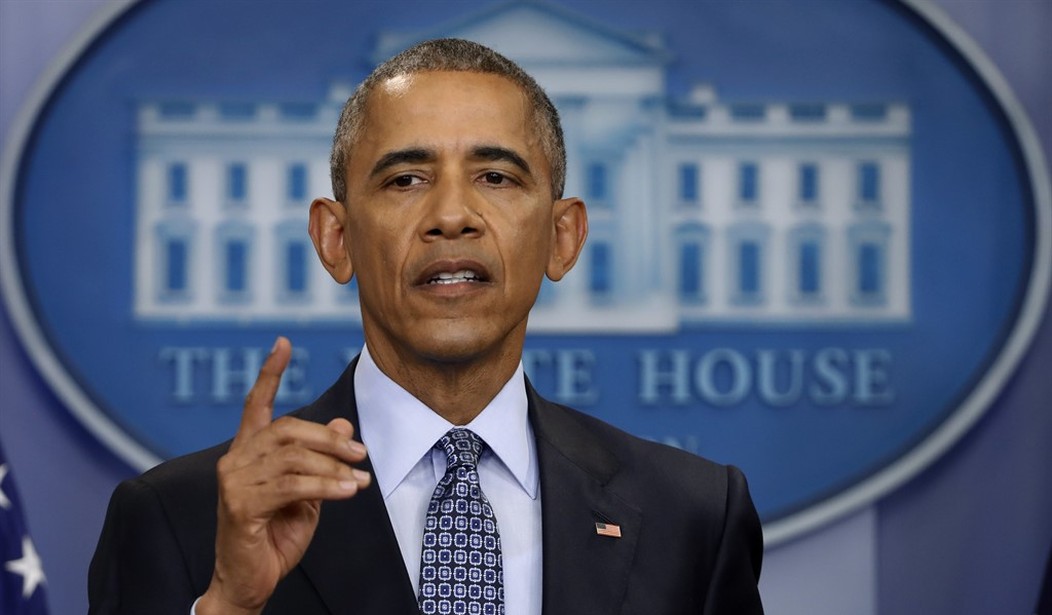On the very day President Donald Trump’s incentive-based tax and regulatory policies are put in place, Barack Obama’s war on business will have officially come to an end. No longer will American companies be punished by uncompetitive rates of taxation and unnecessary rules and regulations.
Business tax rates are coming down from roughly 40 percent to 15 or 20 percent, which is not only a boon for business, but a godsend for the middle class. Slashing business tax rates for both large and small businesses will generate significant new investment, jobs, and growth, all of which will lead to higher wages.
And when people and businesses get to keep more of what they earn, more of what they invest, and more of what they risk, they are incentivized to keep doing more of these activities.
In essence, that’s the Trump economic plan. The president is saying: “We will reward success, not punish it.” He’s also saying: “The war against business is over.”
And that means growth, growth, growth.
You want to lower the budget deficit? You want to lower the debt-to-GDP ratio? Then grow the economy. Not by 1 or 2 percent, which is the lackluster growth rate that solidified during the Obama years. But by 3 or 4 percent.
That level of consistent economic growth will solve a lot of problems. Every 1 percentage point in GDP above the baseline, which is 2 percent today, cuts deficits by more than $3 trillion over ten years.
A U.S. manufacturing boom or more companies staying and making things at home -- those are great things. But I don’t want the U.S. to be an export-led economy. I want us to once again be a market-driven economy. And if we reinvigorate market incentives with tax and regulatory reform, we will once again be king of the hill for economic growth.
Recommended
Anemic growth is what the rest of the world does. And I don’t want us to be the rest of the world. I don’t want us to be semi-socialists. I don’t want the United States to have a value-added tax (VAT). I want us to be free-market capitalists, and I want all the growth that comes with that.
And just imagine an incentive-driven, free-market-capitalist economy where tax dollars collected are put to good use, not squandered. I’m not opposed to government-spending restraint at all. I would like to get rid of the Department of Labor. The Department of Commerce can go, too. I would like to cut all the waste, fraud, and abuse in Washington that’s possible.
Incentive-based tax policy plus “drain the swamp” is an excellent model for the future of America.
But one of the keys to President Trump’s economic success will be strong and clear guidance, and I’m not completely sure the president is receiving such solid advice right now. Someone needs to explain to the president the actual consequences of his fiscal plans. Cause-and-effect scenarios need to be mapped out, at least so there are no surprises down the road.
For instance, Trump is talking about lower trade gaps and a weaker dollar. Well, if his lower tax and regulatory policies go through and work as I believe they will, the reverse will occur. The dollar will strengthen and trade gaps will widen. Somebody needs to sit with the president and say, “Think about this. Here are some charts that show what happened in the past when across-the-board tax cuts and regulatory reforms were put in place.”
History shows that growth-driven trade deficits are merely the flip-side of massive capital inflows from around the world. That’s a good thing, not a bad one. Additionally, a strong and stable King Dollar will generate investment confidence at home and abroad and will also hold down inflation. Another good thing.
The first few weeks of the Trump administration have not been short of controversy. But they’ve also been filled with promise. The president is proving right out of the gate that he’s both a man of his word and someone who gets things done.
But let me put my vote in for the primacy of tax and regulatory reform -- in particular a reduction of the corporate tax rate from 40 percent to 15 or 20 percent. This is the backbone of President Trump’s growth policies. As such, business tax reform should come early, not late.
It would be best that it come in the first reconciliation bill this spring. Otherwise, if it comes late this year or next year, the 2017 economy and stock markets will disappoint as people postpone activity until they are certain of the lower tax rates and the rules that will accompany them.
The end of Obama’s war on business cannot come fast enough. Neither can renewed economic growth. Early tax reform is the key.

























Join the conversation as a VIP Member